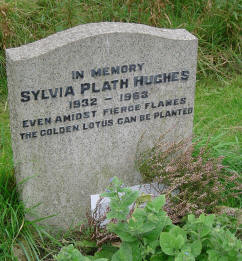Plath as a Major Poet: A Thread from WOM-PO
BY Annie Finch
A topic raised recently on the wom-po (discussion of women's poetry) listserv caught my eye, and I got permission from the poster, Christine Hamm, to raise her question here on Harriet: "Why is there so much resistance to seeing Sylvia Plath as a major poet"?

Christine wrote, "I'm taking my qualifying exams at my university as part of my PhD, and when I asked to focus on Plath, I was told that she was considered a significant poet. They let me focus on all the Confessionals as a topic, but not Plath by herself, since she's not "major.""
I had a related experience when I arrived at college thirty years ago and found my admiration of Plath treated dismissively. But things seemed to have changed by last fall, when I was part of Plath's 75th birthday conference at Oxford. It was satisfying to see people there treating her as undoubtedly a major poet, and to see how her work rose so well to the occasion. I was particularly taken with a full lecture on one poem, "Poem for A Birthday," which helped me appreciate its power and complexity.
Are Christine's committee members behind the times? Is their judgment based on some objective factor, such as the limited amount of work Plath published (would George Herbert have made the cut?) Or are there more disturbing forces at work? What does it mean now, to be a "major poet"? Are race and gender still an implicit part of the "major" definition, as they were for so many centuriest?
Annie Finch is a poet, translator, cultural critic, and performance artist. She is the author of seven...
Read Full Biography

